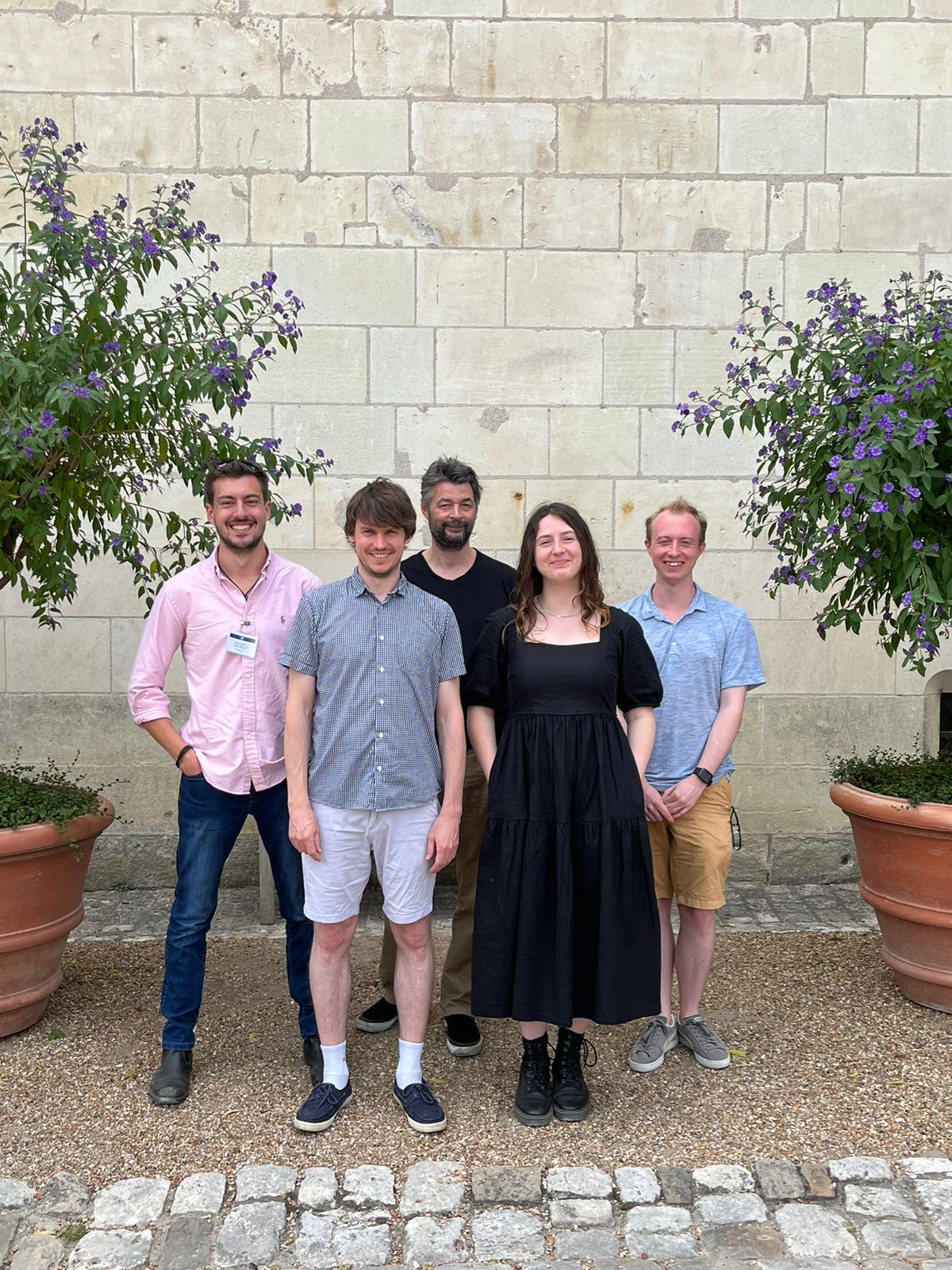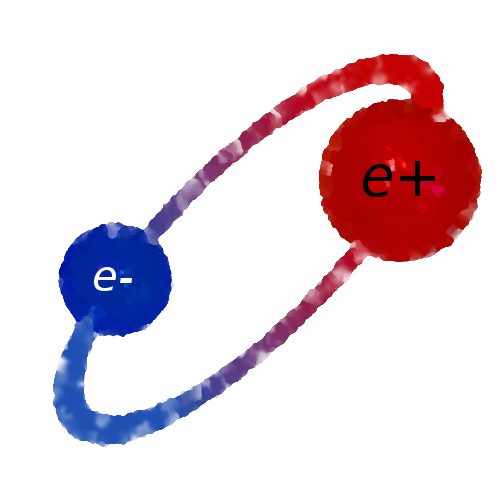Welcome to the website of the Positronium Spectroscopy group based at University College London in the UK. We are part of the AMOPP group who do Atomic, Molecular, Optical and Positron Physics, which is in turn a part of the Department of Physics and Astronomy. Our research includes studies into quantum electrodynamics, symmetry breaking in leptons, antimatter gravity and other areas of fundamental physics, all with the exotic atom called positronium (Ps). We use spectroscopy (measuring spectra from the interaction of light and matter) to perform these experiments using optical, microwave and THz wavelengths of light. You can keep track of our progress through our blog and publications page and follow us on twitter (or is it X now?) and instagram.
What is Positronium?
Ps is an atom made of an electron (e–) bound to an anti-electron (e+, known as a positron). The particle/ antiparticle pair have equal but opposite electric charge and are held together in a similar way to the electron and proton in a hydrogen atom. However, because a positron has the same mass as an electron (0.00054 × the mass of a proton), Ps is much lighter than any of the elements found in the periodic table.

Unlike hydrogen, Ps is inherently unstable and the electron and positron usually annihilate with each other within a few hundred billionths of a second, producing gamma-ray photons. Fortunately, the short lifetime of ground-state Ps is not too short for us to probe it using pulsed lasers. These can be used to resonantly drive the atoms to highly-excited Rydberg states that are comparatively long lived, making it possible to perform experiments over much longer time scales.
Our Goals
Our group has several aims:
- Precision tests of quantum electrodynamics in Ps and the Ps negative ion (Ps–)
- Measurements of antimatter-gravity using Rydberg Ps interferometry
- Tests of CP violation in a leptonic system
- Precision measurement of the Rydberg constant in a leptonic system

Acknowledgements
Also a great thank you to our technical staff at UCL: John Dumper, Rafid Jawad and Finn Noyes. As well as Lee, Jim, Amalia, Kelvin, Mark and all the others who help us out in and around the department.
We have a close collaboration with Professor Stephen Hogan‘s Rydberg Spectroscopy group and the other researchers in AMOPP such as Peter Barker, Jonathon Breeze and others.
We are grateful to the EPSRC (Grant No. EP/K028774/1, EP/R006474/1, EP/S036571/1, EP/W032023/1), ERC (Marie Skłodowska-Curie action (MSCA) Career Integration Grant No. 630119) as well as the Leverhulme Trust (Grant No. RPG-2013-055) and Lundbeck Foundation (Grant No. R49-A5860) for providing funding.
